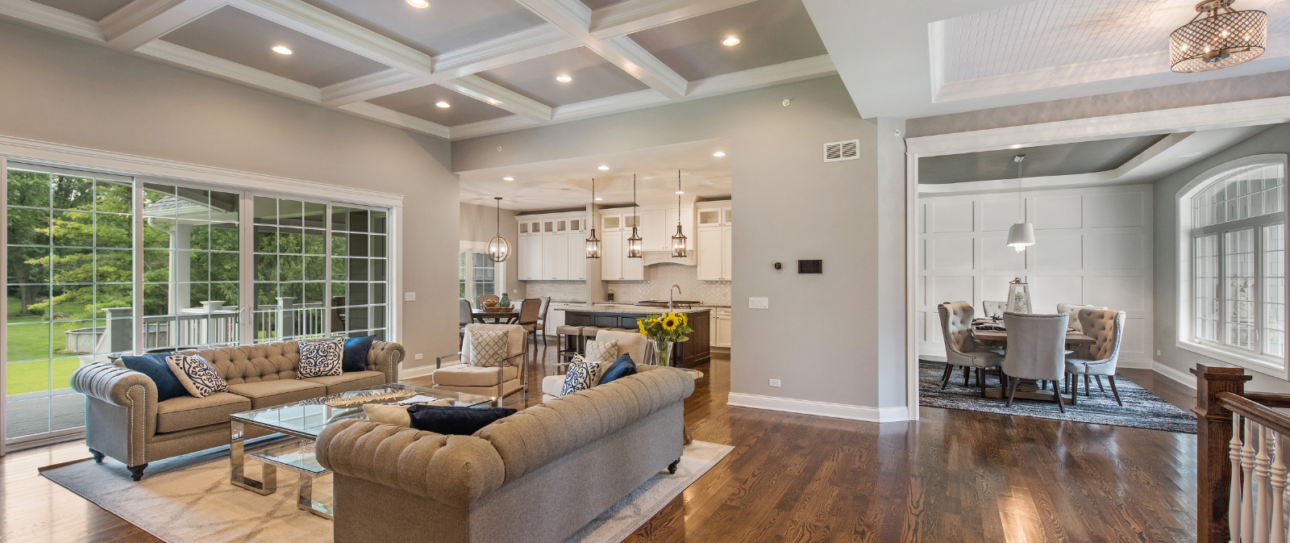The Top 10 Advantages of Engineered Hardwood Floors
Engineered hardwood flooring has emerged as a premier choice for homeowners seeking the timeless beauty of hardwood with added durability and versatility.
Originating from innovative manufacturing techniques, engineered hardwood offers a plethora of benefits over traditional solid hardwood.
Let’s delve into its definition, production process, popular styles, advantages, pricing comparisons, and frequently asked questions.
What Is Engineered Hardwood?
Engineered hardwood is a composite flooring product comprising layers of real wood adhered together under high pressure. Unlike solid hardwood, engineered planks consist of a top layer of hardwood veneer bonded to multiple layers of plywood, fiberboard, or hardwood.
This construction enhances stability and minimizes susceptibility to moisture and temperature fluctuations. Engineered hardwood’s roots trace back to the mid-20th century, with advancements in technology and materials refining its quality and appeal.
Engineered Hardwood Production Process
The manufacturing process involves slicing thin layers of hardwood from a log, which are then bonded to a substrate using adhesive. The layers are arranged in a cross-grain pattern, enhancing structural integrity and minimizing expansion and contraction. This engineered construction mitigates warping, cupping, and twisting commonly associated with solid hardwood, making it suitable for various environments, including basements and regions with high humidity levels.

Top 10 Advantages of Engineered Hardwood Floors
Enhanced Durability: Engineered hardwood’s multi-layered construction provides superior durability, resisting scratches, dents, and wear over time.
Moisture Resistance: Its layered structure reduces the risk of moisture-related damage, making it suitable for installation in areas prone to humidity, such as bathrooms and kitchens.
Stability: Engineered hardwood is less prone to expansion and contraction compared to solid hardwood, making it ideal for installation over concrete slabs and radiant heating systems.
Wide Range of Styles: From traditional oak and maple to exotic species like acacia and bamboo, engineered hardwood offers a diverse array of styles, finishes, and textures to complement any aesthetic preference.
Easy Installation: Engineered hardwood can be installed using various methods, including glue-down, nail-down, or floating, facilitating faster and more cost-effective installation.
Environmentally Friendly: Engineered hardwood often utilizes sustainable wood sources and minimizes waste by maximizing the use of hardwood veneer.
Compatibility with Underfloor Heating: Its stable construction allows for efficient heat transfer, making it an excellent choice for homes with radiant heating systems.
Cost-Effective: While initially priced higher than laminate or vinyl flooring, engineered hardwood offers long-term value due to its durability and timeless appeal, potentially increasing property value.
Easy Maintenance: Regular sweeping and occasional damp mopping are typically all that’s needed to keep engineered hardwood floors looking pristine, saving time and effort in upkeep.
Resale Value: Engineered hardwood flooring adds significant resale value to homes, appealing to potential buyers seeking high-quality, low-maintenance flooring solutions.
Top 5 Most Popular Types/Styles of Engineered Hardwood
Oak: Classic and versatile, oak engineered hardwood offers timeless elegance with its natural grain patterns and warm tones.
Maple: Known for its durability and light, uniform appearance, maple engineered hardwood lends a modern yet timeless aesthetic to any space.
Hickory: Characterized by its rich color variations and distinctive grain patterns, hickory engineered hardwood adds rustic charm and visual interest to interiors.
Walnut: Renowned for its luxurious appearance and deep, rich hues, walnut engineered hardwood exudes sophistication and warmth.
Bamboo: Sustainable and eco-friendly, bamboo-engineered hardwood offers durability and unique aesthetics, making it a popular choice for environmentally conscious homeowners.
Engineered Hardwood Pricing Comparison
While engineered hardwood typically costs more than laminate or vinyl flooring, it tends to be more affordable than solid hardwood. However, pricing varies depending on factors such as the wood species, thickness, finish, and brand.
Despite the initial investment, the long-term durability and aesthetic appeal of engineered hardwood make it a worthwhile investment, often outlasting cheaper alternatives.
Top 10 FAQs about Engineered Hardwood
Is engineered hardwood real wood? Yes, engineered hardwood comprises a top layer of real hardwood veneer bonded to multiple layers of plywood, fiberboard, or hardwood.
Can engineered hardwood be refinished? Depending on the thickness of the hardwood veneer, engineered hardwood can typically be refinished at least once or twice during its lifespan.
How does engineered hardwood compare to solid hardwood? Engineered hardwood offers enhanced durability and moisture resistance compared to solid hardwood, making it suitable for a wider range of applications.
Can engineered hardwood be installed over concrete? Yes, engineered hardwood is suitable for installation over concrete slabs, provided proper moisture barriers and adhesives are used.
Is engineered hardwood environmentally friendly? Many engineered hardwood manufacturers use sustainable wood sources and minimize waste, making it a more environmentally friendly option compared to solid hardwood.
Can engineered hardwood be installed in basements? Yes, engineered hardwood is suitable for installation in basements, as its layered construction reduces the risk of moisture-related damage.
How long does engineered hardwood flooring last? With proper care and maintenance, engineered hardwood flooring can last upwards of 20-30 years or more.
Is engineered hardwood suitable for homes with pets? Yes, engineered hardwood is durable and scratch-resistant, making it suitable for homes with pets. However, it’s essential to trim pets’ nails regularly and use rugs or mats in high-traffic areas to minimize wear.
Can engineered hardwood be installed in kitchens and bathrooms? Yes, engineered hardwood is suitable for installation in kitchens and bathrooms, provided proper sealing and maintenance are performed to protect against moisture damage.
How do I clean and maintain engineered hardwood floors? Regular sweeping or vacuuming to remove debris, followed by damp mopping with a hardwood floor cleaner, is typically all that’s needed to maintain engineered hardwood floors.
Conclusion
Engineered hardwood flooring continues to reign as a preferred choice among homeowners, offering a perfect blend of beauty, durability, and versatility.
With its myriad advantages, diverse styles, and eco-friendly attributes, engineered hardwood stands as a timeless investment that enhances the aesthetic appeal and value of any home.
If you have any questions about our article, “The Top 10 Advantages of Engineered Hardwood Floors” or need engineered hardwood flooring contact us at sales@generalflooringcanada.ca or chat with us on LiveChat or social media.




